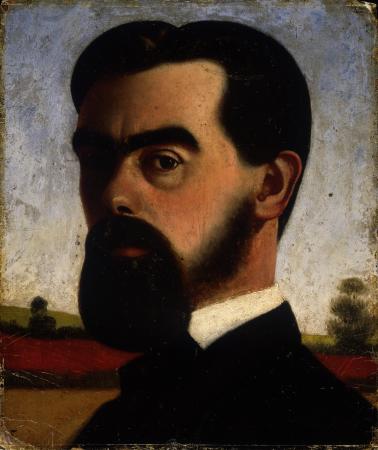Frases célebres de Samuel Butler
Primeras líneas de la traducción de Butler de la Ilíada (1898).
Fuente: [Butler] (2015).
Parte II - Moralidad elemental
The Note-Books of Samuel Butler (1912)
Fuente: [Butler] (1973).
Parte I - Señor, ¿qué es el hombre?
The Way of All Flesh (1903)
Fuente: [Butler] (1912).
Capítulo 13
The Way of All Flesh (1903)
Fuente: [Butler] (1973).
Capítulo 5
The Way of All Flesh (1903)
Fuente: [Butler] (1973).
Frases de hombres de Samuel Butler
The Fair Haven, memorias del difunto John Pickard Owen, cap. 3 (1873).
Fuente: [Butler] (2015).
Vida y hábitos, cap. 5 (1877).
Fuente: [Butler] (2005).
“El hombre que se deja aburrir es incluso más despreciable que el aburrido.”
The Fair Haven, memorias del difunto John Pickard Owen, cap. 3 (1873).
Fuente: [[Butler], Samuel, The Fair Haven, CreateSpace Independent Publishing Platform, 1952] ISBN 1979911223
Samuel Butler Frases y Citas
Capítulo 27
Erewhon (1872)
Fuente: [Butler] (2010).
Capítulo 12
Erewhon (1872)
Fuente: [Butler] (2010).
Capítulo 9
Erewhon (1872)
Capítulo 3
Erewhon (1872)
Fuente: [Butler] (2010).
“Una gallina es solo la forma en que un huevo hace otro huevo.”
Vida y hábitos, cap. 8 (1877).
Fuente: [Butler] (2005).
“La vida y la muerte están equilibradas como si estuvieran al borde de una navaja.”
Vida y hábitos, cap. 8 (1877).
Fuente: [Butler] (2015).
A Psalm of Montreal, cap. 5 (1884).
Fuente: [[Butler], Samuel, The essential Samuel Butler, Dutton, 1950]
Samuel Butler: Frases en inglés
“All animals, except man, know that the principal business of life is to enjoy it.”
Fuente: The Way of All Flesh (1903), Ch. 19
“It must be remembered that we have only heard one side of the case. God has written all the books.”
An Apology for the Devil
The Note-Books of Samuel Butler (1912), Part XIV - Higgledy-Piggledy
Fuente: The Note Books of Samuel Butler
“Sensible people get the greater part of their own dying done during their own lifetime.”
Fuente: The Way of All Flesh (1903), Ch. 24
Fuente: The Way of All Flesh (1903), Ch. 14
Contexto: Every man’s work, whether it be literature or music or pictures or architecture or anything else, is always a portrait of himself, and the more he tries to conceal himself the more clearly will his character appear in spite of him.
“To live is like to love — all reason is against it, and all healthy instinct for it.”
Life and Love
The Note-Books of Samuel Butler (1912), Part XIV - Higgledy-Piggledy
“Silence is not always tact and it is tact that is golden, not silence.”
Silence and Tact
The Note-Books of Samuel Butler (1912), Part XIV - Higgledy-Piggledy
“All men can do great things, if they know what great things are.”
Great Things
The Note-Books of Samuel Butler (1912), Part XI - Cash and Credit
Ego and Non-Ego
The Note-Books of Samuel Butler (1912), Part XX - First Principles
Waste-Paper Baskets
The Note-Books of Samuel Butler (1912), Part XIV - Higgledy-Piggledy
Inarticulate Touches
The Note-Books of Samuel Butler (1912), Part IX - A Painter's Views on Painting
“Feeling is an art and, like any other art, can be acquired by taking pains.”
Feeling
The Note-Books of Samuel Butler (1912), Part VI - Mind and Matter
Waste
The Note-Books of Samuel Butler (1912), Part VIII - Handel and Music
Fuente: Erewhon (1872), Ch. 27
“A hen is only an egg's way of making another egg.”
Life and Habit http://www.gutenberg.org/dirs/etext04/lfhb10h.htm, ch. 8 (1877)
“An energy is a soul — a something working in us.”
Matter and Mind, iii
The Note-Books of Samuel Butler (1912), Part VI - Mind and Matter
Cannibalism
The Note-Books of Samuel Butler (1912), Part II - Elementary Morality
Handel and Bach, i
The Note-Books of Samuel Butler (1912), Part VIII - Handel and Music
Intellectual Self-Indulgence
The Note-Books of Samuel Butler (1912), Part II - Elementary Morality
Philosophy and Equal Temperament
The Note-Books of Samuel Butler (1912), Part XX - First Principles
Ephemeral and Permanent Success
The Note-Books of Samuel Butler (1912), Part XI - Cash and Credit
